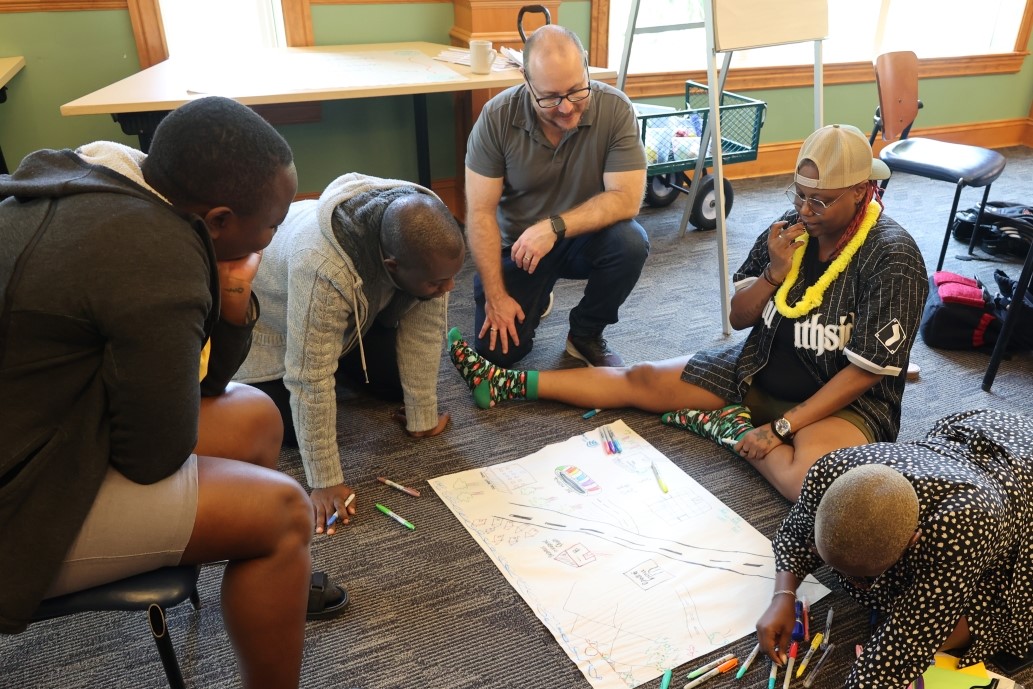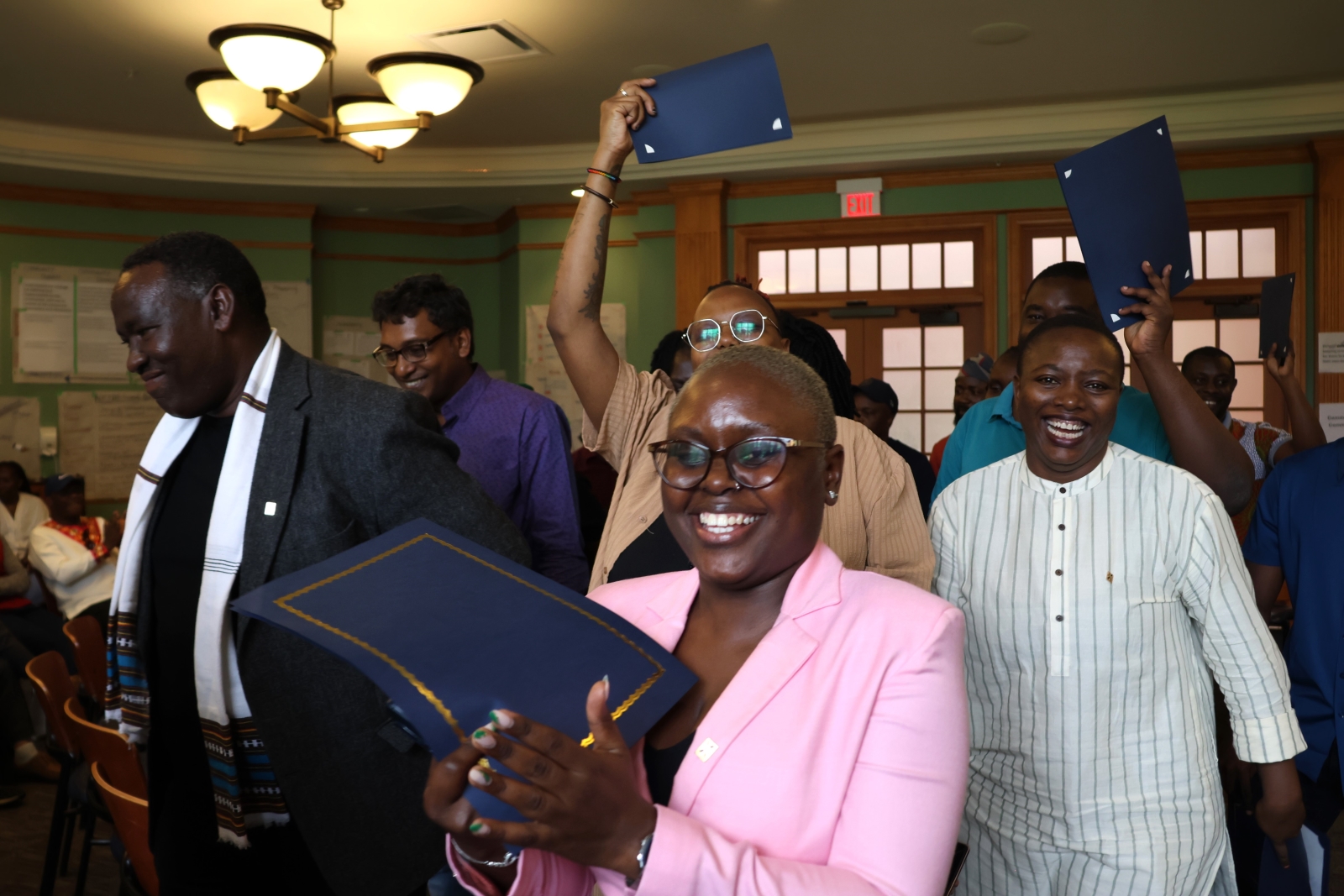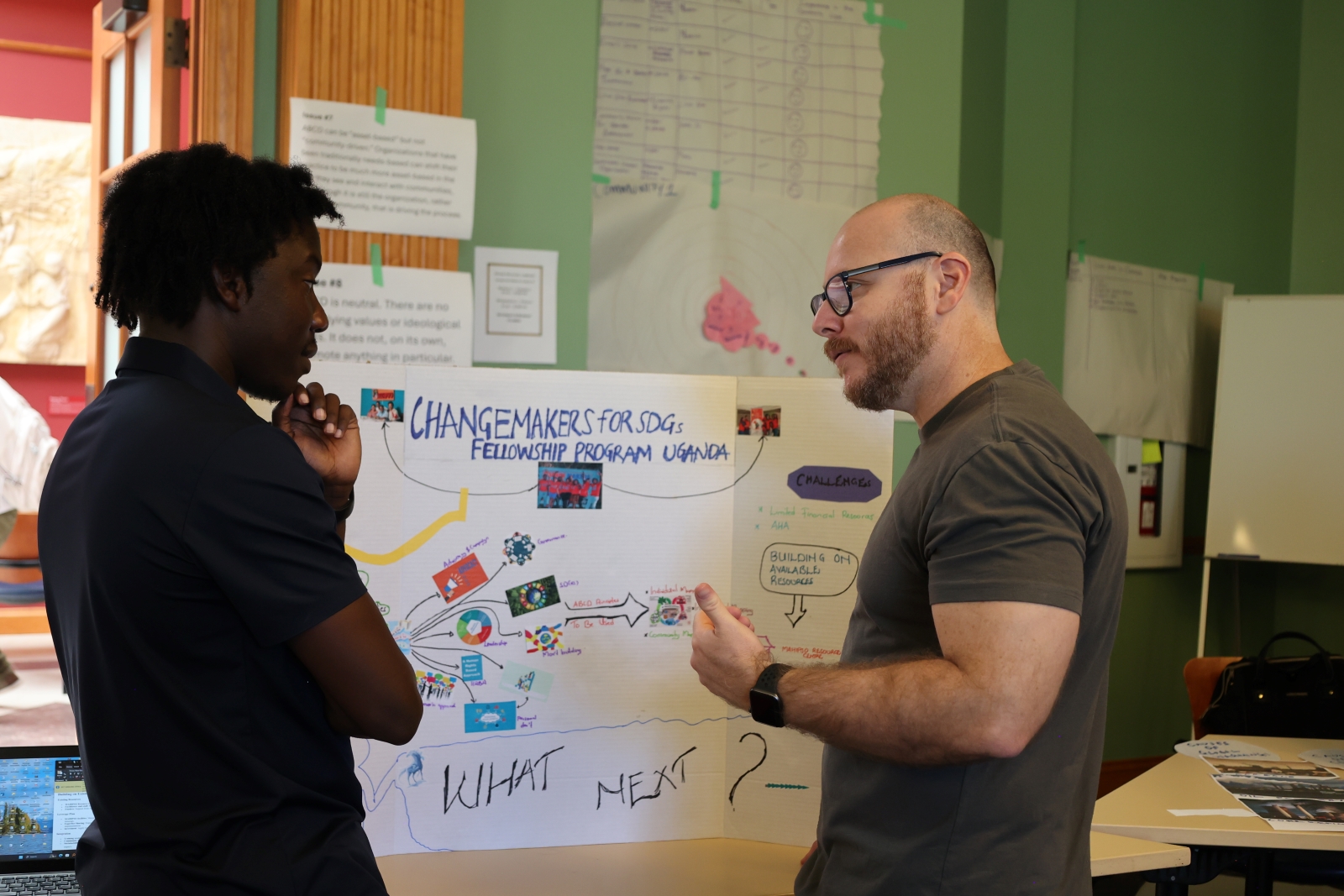In human rights work, the concept of dependency syndrome plagues much of the advocacy that groups conduct. LGBTQ and sex worker advocacy that UHAI (meaning ‘life’ or ‘alive’ in Swahili) and its partners undertake is no exception.
Ange, a capacity support worker within UHAI, says that while people within UHAI and its partner organizations are very talented, their constant oppression makes those talents hard to recognize.
“Coming from a community that is criminalized, ostracized, and discriminated, we kind of embody that feeling of I’m not desired, I’m not worthy,” Ange says.
It is not I who is the one with the power, but we are the ones with the power – we are able to do this.
Through working at UHAI, Ange’s supervisor told her about the Asset-Based Community Development (ABCD) concept. Following these discussions, Ange knew she needed to experience further learning about ABCD and welcomed the opportunity to study at Coady Institute.
Members from UHAI and its regional partners attended Asset-Based and Community-Led Development: Theory and Practice, one of three on campus courses offered by the Insitute this summer.
Instead of focusing on deficits and what a community does not have, the ABCD approach focuses on the resources and strengths that communities do have and how they can be used for advocacy.
While UHAI and its partners continue to be realistic about the immense barriers they face, UHAI program officer Astheie says that a “mind shift” to focusing on the ABCD principles is necessary for building relationships and making progress.
Through discussions with Coady, the idea of an ABCD fellowship across UHAI’s local landscape emerged. The fellowship would allow others across the regions that UHAI covers to learn about ABCD and how it can be used to mobilize oppressed communities.
“When you’re involved in human rights [work], you then to look at what’s not right . . . ABCD gives you a new set of eyes,” Ange says.



The sentiment of coming from a needs-based approach due to dependency syndrome was echoed by partners of UHAI who attended the Coady certificate course.
Joe works with Mohipso, a UHAI partner organization in Uganda that aims to empower young leaders in the LGBTQ and sex work communities around the Sustainable Development Goals framework.
“We are from marginalized community and often times we have few opportunities where we are empowered, where we are helped to see our self-realization because we have that dependence syndrome,” Joe says.
During his time at Coady, Joe’s biggest takeaway was the need to think beyond dependency and that communities must work to mobilize themselves and inspire change.
“It’s going to help us shift the mindset of the movement within the African region,” Joe says.
Mimi, a partner of UHAI who works with Uniting Young Minds in Tanzania, a trans-led organization, says that there is a lack of support from “everywhere” due to the oppression that trans people face in Tanzania. However, through asset-based mapping, individuals work to realize the assets that their community has.
During many of the lessons, such as identifying the resources in her community, Mimi says that she “travelled” back to Tanzania in her mind. Much of the work felt like it was not in a traditional setting, but the relationship between each lesson allowed her to easily connect the lessons to her local context.
“I will use this ABCD knowledge, and it will bring change in my community,” Mimi says.
Throughout her time at Coady, Ngina, who works with Upinde Advocates for Inclusion in Kenya, says that the “beauty of community” was the theme that most stood out to her.
“It is not I who is the one with the power, but we are the ones with the power – we are able to do this,” Ngina says.
Along with the strengthened relationship with Coady, Ngina says that the opportunity for so many people from UHAI and its partners to meet in person strengthened their work in advocacy and sustainability even more.
UHAI is Africa’s first Indigenous activist-led and managed fund for and by sex workers and sexual and gender minorities. It works with partners in Burundi, the Democratic Republic of Congo, Ethiopia, Kenya, Rwanda, Tanzania, and Uganda.
